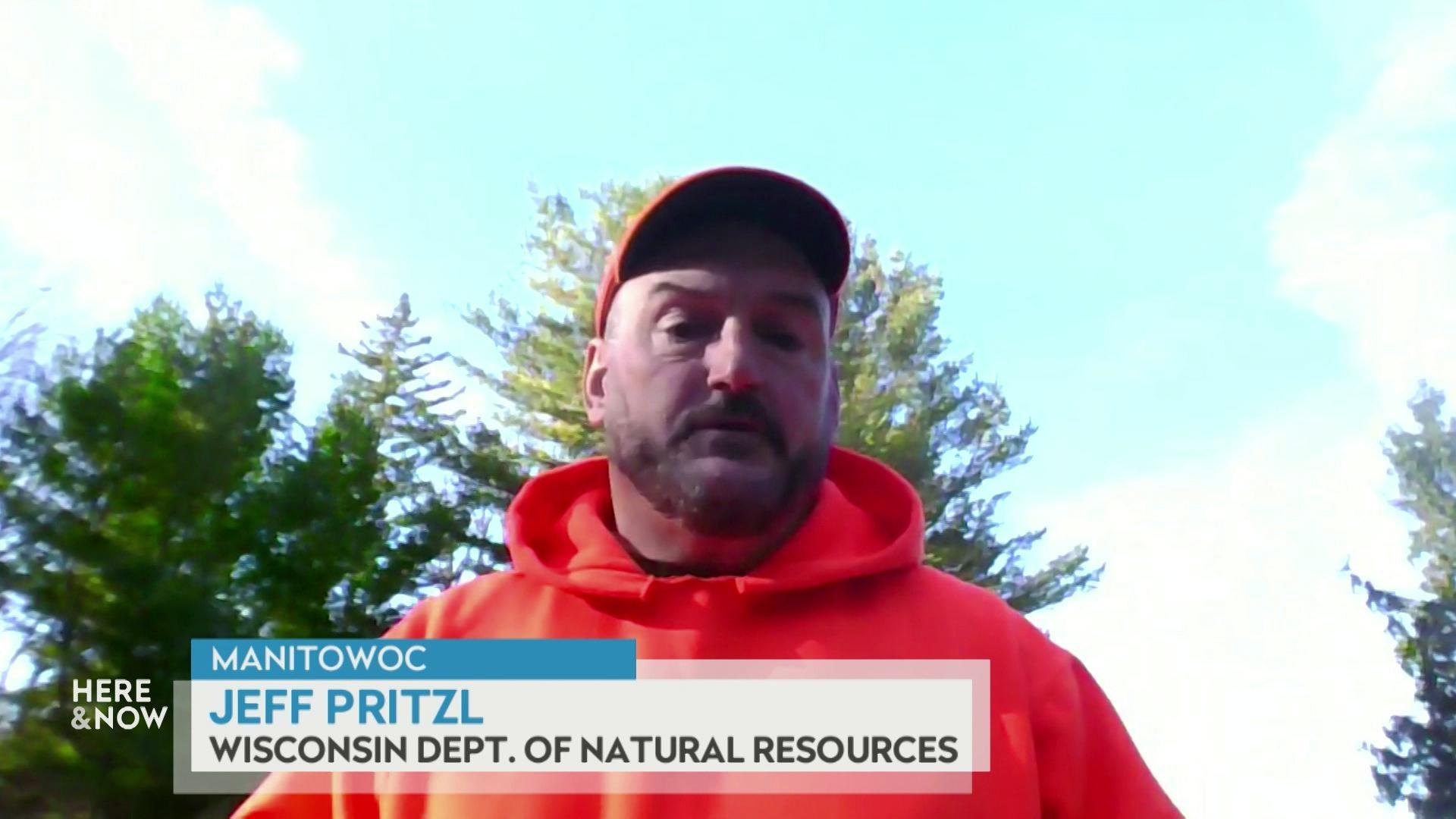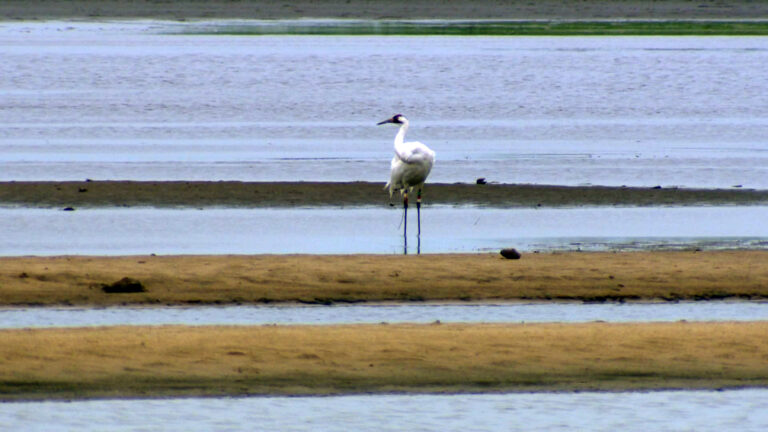Elizabeth Braatz on the prominence of bees as pollinators
Wisconsin Department of Natural Resources insect ecologist Elizabeth Braatz explains how various species of native bees have bodies and behaviors that are adapted to pollinate crops and other plants.
By Steven Potter | Here & Now
September 28, 2023
VIDEO TRANSCRIPT
Elizabeth Braatz:
Bees are the workhorses of the pollinator world. They are more efficient generally than butterflies, although butterflies are also great pollinators and they're just really, really, really hardworking at pollinating the native plants around us, as well as many crops. They're in general, for pollinators, 'cause there's so many species that pollinate. But bees are very, very important to that because they are, in general, the fluffier the pollinator, the better it is at collecting pollen because it'll just kind stick to their hairs and then they'll groom themselves or put it into their corbiculas, their pollen baskets for the rest of the colony. And you'll have hundreds of bees in the colony. And so all of them are working, out working and collecting pollen and spreading that pollen to other plants. They also do a really special type of pollination called, it's called buzz pollination. So imagine there's a lot of species of plants that are really kind of designed for buzz pollination, that are kind of hard for a lot of species to get to. But bumblebees can get to them because what they'll do is, especially for flowers that kind of dangle down like this, such as a shooting star. They'll grab onto them and then they'll just vibrate. It's kind of like when you're trying to, you're trying to shake the last thing out of a bottle or something, and they'll vibrate and the pollen will just fall onto them and they'll be able to get it. But that's, it's a really neat type of pollination and it's really helpful.
 Passport
Passport











Follow Us